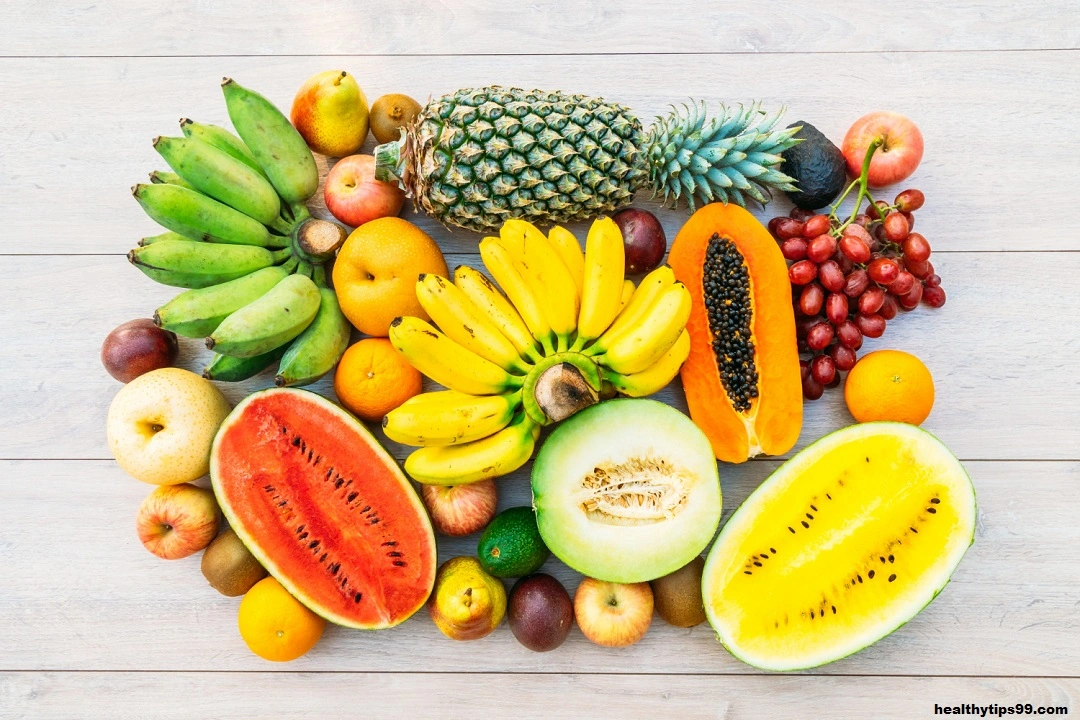Introduction
A fruit diet, often called a fruitarian diet, emphasizes consuming raw fruits as the primary source of nutrition. This diet has gained popularity for its potential health benefits, weight loss effects, and the appeal of natural eating. In this blog post, we’ll explore what a fruit diet entails, its benefits, and practical tips for those interested in adopting this lifestyle. We will also address some frequently asked questions about the fruit diet.
What is a Fruit Diet?
A fruit diet, also known as a fruitarian diet, primarily consists of consuming fresh fruits. This diet emphasizes eating raw, ripe fruits to harness their natural nutrients and antioxidants. Advocates believe that a fruit diet can improve digestion, boost energy levels, and promote overall health. While some follow a strict fruit-only regimen, others incorporate nuts, seeds, and leafy greens for a more balanced approach. It’s essential to ensure adequate intake of essential nutrients, as relying solely on fruits can lead to deficiencies. Consulting with a healthcare professional is recommended before starting a fruit diet to ensure it meets individual health needs.

Benefits of a Fruit Diet
1. Rich in Nutrients
Embracing a fruit-rich diet offers a multitude of benefits, thanks to the abundance of essential nutrients packed into each vibrant bite. Fruits are loaded with vitamins, minerals, and antioxidants that support overall health and vitality. Vitamin C, found in citrus fruits, boosts the immune system and promotes glowing skin, while potassium in bananas helps regulate blood pressure. Berries are rich in antioxidants that combat free radicals, reducing the risk of chronic diseases. Additionally, the natural fiber in fruits aids digestion and supports weight management. Incorporating a variety of fruits into your diet ensures you receive a broad spectrum of health-boosting nutrients.
2. High in Fiber
High fiber content being a standout feature. Fiber aids in digestion, helping to maintain regular bowel movements and prevent constipation. It also supports weight management by promoting a feeling of fullness, reducing the likelihood of overeating. Additionally, fiber helps regulate blood sugar levels, which is beneficial for managing diabetes. It can lower cholesterol levels, contributing to heart health. Fruits like apples, berries, and oranges are particularly high in fiber, making them excellent choices for a healthy diet.
3. Natural Weight Loss
Fruits are packed with essential vitamins, minerals, and antioxidants, providing your body with the nutrients it needs while being low in calories. Their high fiber content helps you feel full longer, reducing the urge to snack on unhealthy foods. Fruits also have a high water content, keeping you hydrated and aiding in digestion. The natural sugars in fruits provide a steady energy boost without the crash associated with processed sweets. Incorporating a variety of fruits into your daily meals can make weight loss enjoyable and sustainable.
4. Boosts Immunity
One of the most notable being a significant boost to your immune system. Fruits are packed with essential vitamins, minerals, and antioxidants that work together to strengthen your body’s natural defenses. Vitamin C, found abundantly in citrus fruits, enhances the production of white blood cells, vital for fighting infections. Berries, rich in antioxidants, help protect your cells from damage. Additionally, fruits like kiwi and papaya contain enzymes that support digestion and improve nutrient absorption.
5. Improves Skin Health
Eating a diet rich in fruits can do wonders for your skin. Fruits are packed with essential vitamins, antioxidants, and hydration that nourish and rejuvenate your skin from within. Vitamin C, found in citrus fruits, boosts collagen production, making your skin firmer and reducing wrinkles. Antioxidants in berries combat free radicals, preventing premature aging and giving you a youthful glow. The high water content in fruits like watermelon and cucumber keeps your skin hydrated and supple.

Tips for Starting a Fruit Diet
1. Gradual Transition
Start by incorporating more fruits into your current diet before making the full switch. This gradual change helps your body adjust to the new eating habits.
2. Variety is Key
Eat a wide variety of fruits to ensure you get a broad spectrum of nutrients. Include fruits of different colors and types.
3. Stay Hydrated
While fruits contain a lot of water, it’s essential to drink plenty of water throughout the day to stay properly hydrated.
4. Supplement Wisely
Consider supplementing your diet with nuts, seeds, and leafy greens to ensure you’re getting enough protein and essential fats.
5. Listen to Your Body
Pay attention to how your body responds to the diet. If you experience any negative symptoms, adjust your fruit intake or consult with a healthcare professional.
Frequently Asked Questions About the Fruit Diet
Q1. Can a fruit diet provide all necessary nutrients?
While a fruit diet is rich in many essential nutrients, it might lack adequate protein, fat, and certain vitamins like B12. Including a variety of fruits and supplementing with nuts, seeds, and possibly other plant-based foods can help address these gaps.
Q2. Is a fruit diet suitable for everyone?
A fruit diet can be beneficial for many people, but it may not be suitable for everyone, especially those with certain health conditions like diabetes. It’s essential to consult with a healthcare provider before making significant dietary changes.
Q3. Can I lose weight on a fruit diet?
Yes, many people experience weight loss on a fruit diet due to the low-calorie density of fruits and their high fiber content, which promotes satiety.
Q4. How do I manage cravings for other foods?
Gradually transitioning to a fruit diet and ensuring you eat a variety of fruits can help manage cravings. Additionally, finding creative ways to prepare and enjoy fruits can keep your diet interesting and satisfying.
Q5. What are the potential downsides of a fruit diet?
Potential downsides include nutrient deficiencies, such as lack of protein and essential fats, and an increased risk of tooth decay due to the high sugar content in fruits. Regular dental check-ups and a well-planned diet can mitigate these issues.
A fruit diet can be a refreshing and nutritious way to improve your health and well-being. By focusing on the variety and ensuring a balanced intake of nutrients, you can enjoy the numerous benefits fruits offer. As with any diet, it’s crucial to listen to your body and consult with healthcare professionals to ensure it meets your nutritional needs. Embrace the vibrant and delicious world of fruits, and let nature’s bounty enhance your health journey.
